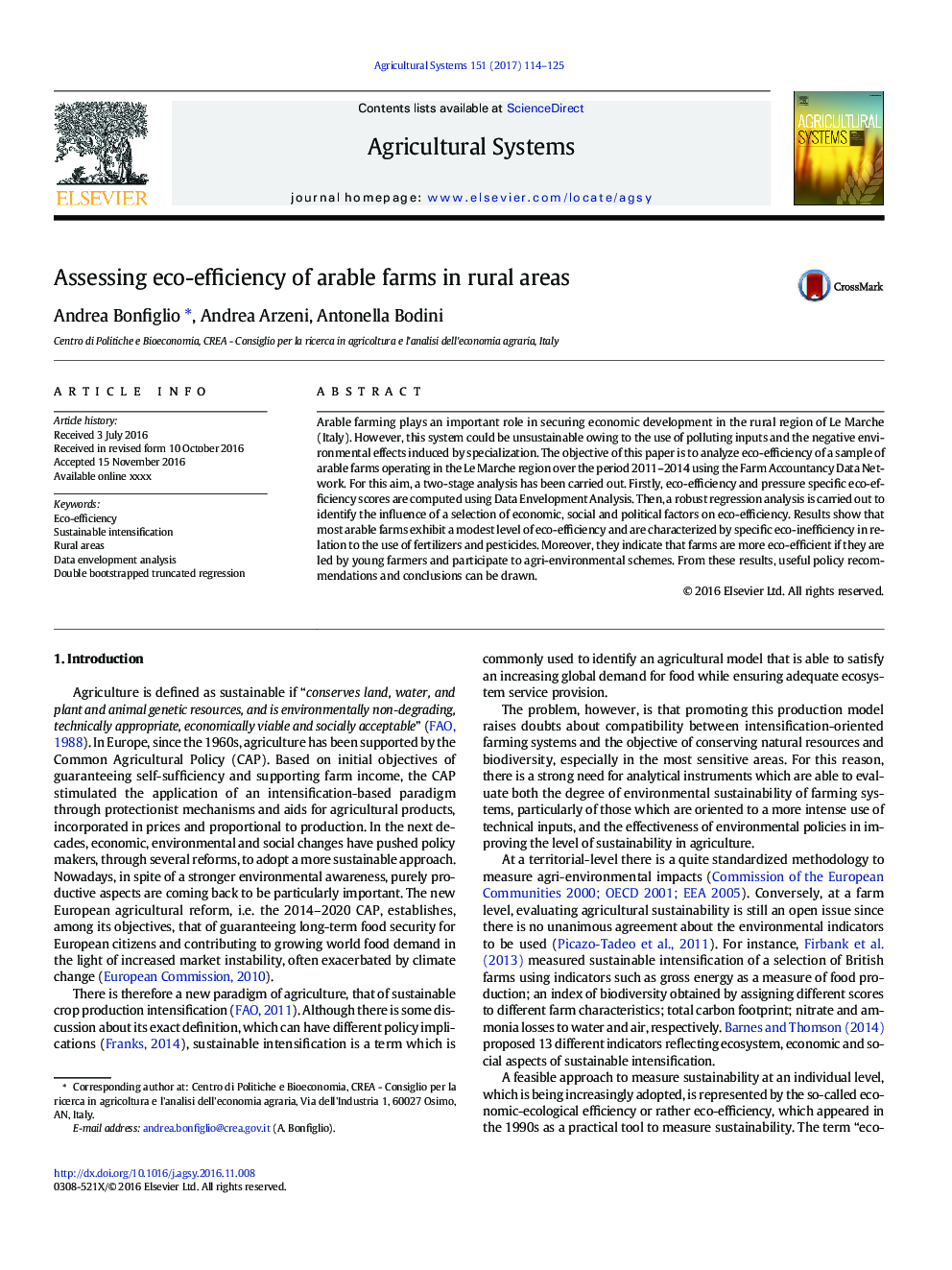| Article ID | Journal | Published Year | Pages | File Type |
|---|---|---|---|---|
| 5759784 | Agricultural Systems | 2017 | 12 Pages |
Abstract
Arable farming plays an important role in securing economic development in the rural region of Le Marche (Italy). However, this system could be unsustainable owing to the use of polluting inputs and the negative environmental effects induced by specialization. The objective of this paper is to analyze eco-efficiency of a sample of arable farms operating in the Le Marche region over the period 2011-2014 using the Farm Accountancy Data Network. For this aim, a two-stage analysis has been carried out. Firstly, eco-efficiency and pressure specific eco-efficiency scores are computed using Data Envelopment Analysis. Then, a robust regression analysis is carried out to identify the influence of a selection of economic, social and political factors on eco-efficiency. Results show that most arable farms exhibit a modest level of eco-efficiency and are characterized by specific eco-inefficiency in relation to the use of fertilizers and pesticides. Moreover, they indicate that farms are more eco-efficient if they are led by young farmers and participate to agri-environmental schemes. From these results, useful policy recommendations and conclusions can be drawn.
Related Topics
Life Sciences
Agricultural and Biological Sciences
Agricultural and Biological Sciences (General)
Authors
Andrea Bonfiglio, Andrea Arzeni, Antonella Bodini,
